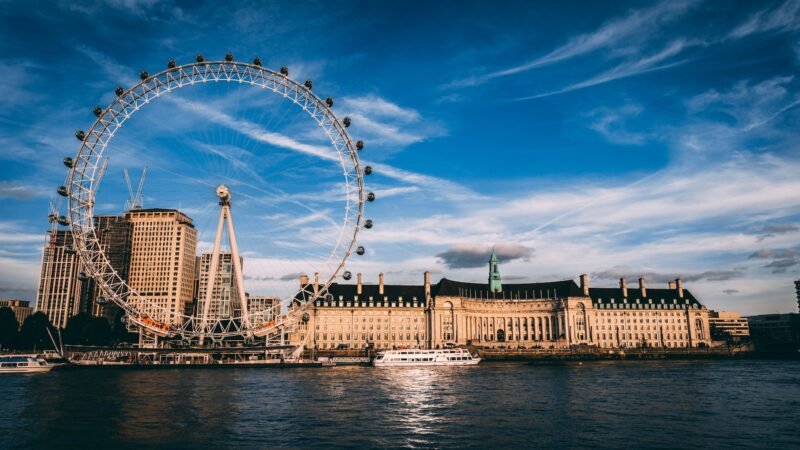Before visiting a country for the first time, it’s always a good idea to know a bit about tipping, since it’s not the same everywhere. It can be confusing to know when to tip and how much, luckily, we have you covered. Tipping is fairly common in the UK though considerably less so than in other countries, such as in the U.S and many parts of Europe.
In the UK, tipping is welcome and expected in restaurants, and sometimes after a pub meal, but not necessarily in cafes, bars and for other services. In pubs and bars, it can be more common on the weekend, for example, but less so for other service providers, such as taxi drivers, hotel porters and cashiers. If someone goes out of their way to help a customer, however, a tip may be given, but it is not usually required or expected.
Other than in restaurants, knowing when to tip and how much will ultimately depend on the customer’s discretion. In this comprehensive guide, we’ll go through some of the basic expectations around tipping in the UK according to different places, services and establishments.

Tipping in the UK
While in some countries, workers such as bar staff, bus drivers, waiters and waitresses, and hotel porters, rely on tips to supplement their income, it isn’t the case in the UK, with workers being paid at least a set, national minimum wage, without relying on tips to get by.
That said, some bar, restaurant and pub staff can make excellent tips, depending on the establishment, location and day of the week. Tipping is more common in the bigger cities, such as London, Manchester and Birmingham, and during weekends, when there are more drinkers and partygoers looking to enjoy themselves.
Tips are going to be much higher in wealthier, inner-city areas, such as in London’s financial district, or in other urban arears and big cities where there are many restaurants, clubs, pubs and bars. If you are in doubt about whether to tip or not, ask a member of staff, or check the receipt, which will often indicate something along the lines of “service fee not included” when a tip is expected.

Bars & Pubs
Pubs are very common in the UK and are often the centre of communities, in both cities and rural areas, offering a wide range of alcoholic and soft drinks and serving traditional food. While tipping is not expected in pubs, it may be practiced by customers who want to complement the staff for an especially delicious meal, or simply as an act of generosity. Sometimes the line between pub and restaurant can be blurry, so if in doubt, it’s better to tip at the restaurant rate of 10-20% of the total bill.
In bars, the situation is similar, though as the night draws on, tips for bar staff are likely to increase as places become busier and customers drink more. There is a drinking culture in the UK, and local customers may be more likely to tip as a gesture of goodwill. Sometimes, customers will tip for drinks, though it depends on the customer’s discretion.

Cafes
It isn’t expected to tip in a cafe, especially for drinks and snack items, such as cakes and coffees, though it is still welcome as a sign of gratitude for good service and an enjoyable experience. If customers enjoy a larger meal in a cafe, they may be more inclined to tip, but it isn’t required. Tipping in cafes could also depend on the establishment in question since some cafes function more like restaurants. If tips are given, there isn’t usually a set rate, just however much the customer feels.
Restaurants
Tipping in restaurants is expected in the UK, with between 10-20% of the bill being the standard rate. Typically, 10% is expected as the bare minimum, though this will depend on the level of the service, the quality of the meal, the establishment and the willingness of the customer. For the most part, 10% is a satisfactory tip for restaurant goers.

Tour Guides, Hotel Staff, Taxi Drivers, Hairdressers & Other Services
While in some countries, tipping is expected for tour guides, hotel porters, hairdressers, taxi drivers and for other services, ranging from anything to mechanics, massage therapists and cashiers, it isn’t required or expected in the UK, though customers will still often tip.
Tipping a tour guide, taxi driver or hotel porter can be common, especially in big cities, and it’s a sign of gratitude for a helpful service. Other services, such as hairdressing, aren’t expected to be tipped for, but it can still be done as a gesture of goodwill. For tour guides and taxi drivers, for example, a tip of 10-15% of the total cost is welcome. In hotels, tipping isn’t expected, but if a hotel porter helps you with your luggage, or a staff member is particularly helpful, then tipping is a good way to express gratitude, with some customers offering some small change.
How Should I Pay The Tip?
How you pay the tip will depend on the establishment and service, with most restaurants, pubs, bars and clubs offering to add a tip to the bill, which is payable by cash or card. Often, people will round-up the bill, leaving a small tip, whether it’s expected or not. In some cases, customers will leave a tip if they have some loose change in cash form, as a gesture of goodwill.
To Tip, Or Not To Tip, That Is The Question
In the UK, it isn’t always clear when and how much to tip. As a general rule of thumb, tipping in restaurants is expected at a minimum of 10%. Sometimes, customers tip for an enjoyable meal in a cafe or pub, but it isn’t required. Otherwise, it’s really up to the customer, and is based entirely on whether you’d like to complement the staff, the service, or the establishment. Some people will tip for a drink or a helpful staff member, while others only for a meal in a restaurant. Some will tip generously, and some will stick with the minimum. It’s good to be aware of the basic etiquette before visiting the UK, especially if it’s your first time.














